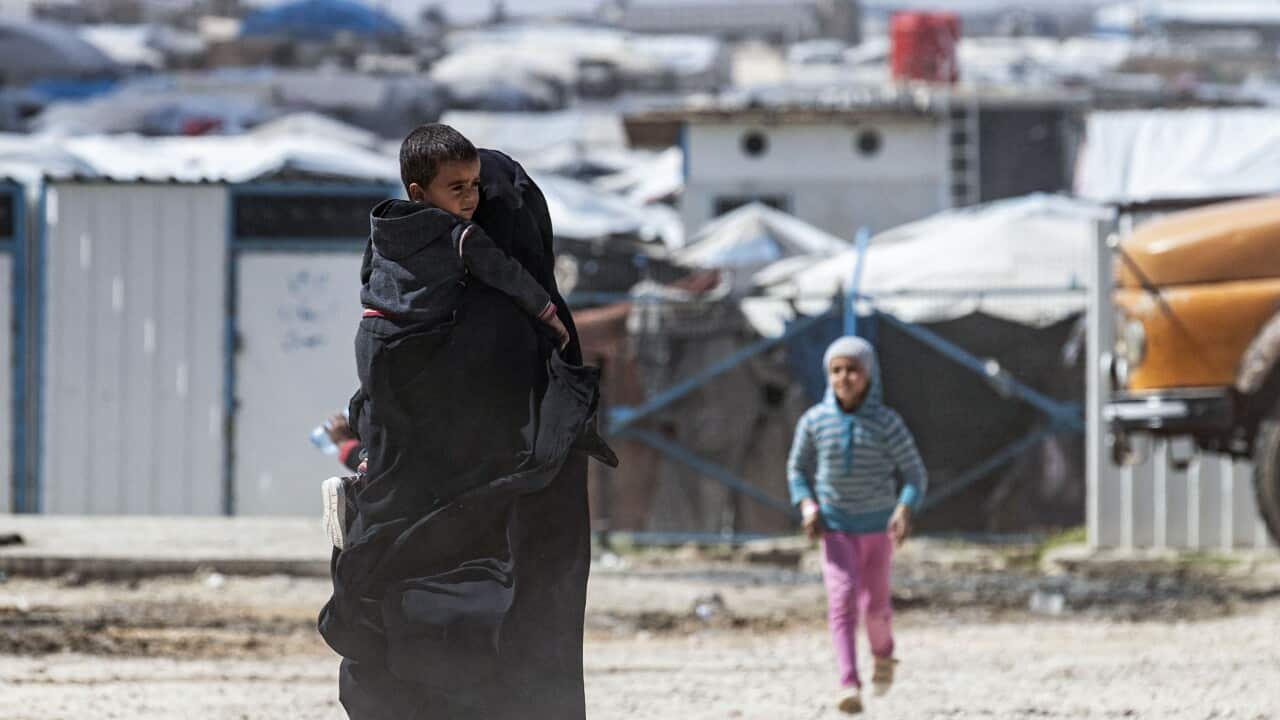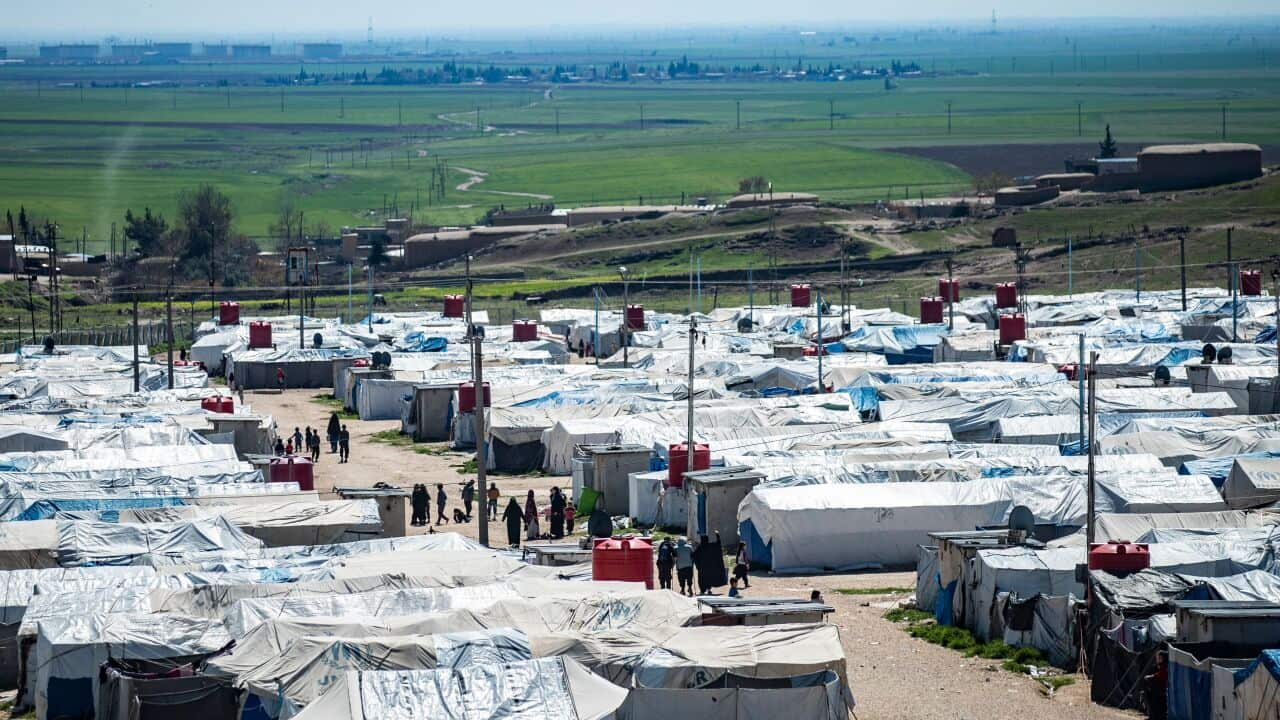Key Points
- Dr Jamal Rifi has joined the support for the government to repatriate Australian women and children from Syria.
- Dr Rifi said children should not be blamed for the actions of their fathers who decided to fight with IS.
Doctor and community advocate Jamal Rifi has joined the chorus of support for the federal government to repatriate dozens of Australian women and children from Syria.
The government's national security cabinet committee is being held on Tuesday to finalise the plans for the return of 16 women and 42 children stuck in the Al-Roj camp, in Syria's northeast.
The Australian newspaper reported a secret mission is being carried out by the Australian Security Intelligence Organisation (ASIO) to pave the way for the repatriation of the families in northeast Syria.

UNICEF has estimated around 10,000 children and women are in Syria's Al-Hol and Roj detention camps, from 60 countries around the world. Source: Getty / AFP / Delil Souleiman
Some of the women have said they were tricked, coerced or taken to Syria against their will by their husbands.
Dr Rifi said children should not be blamed for the actions of their fathers who decided to fight with IS.
"I always believe those kids are the victims of the decision of their fathers. And they shouldn't be penalised for that," he told SBS News.
"They didn't choose to go there. They've been taken there against their will because their fathers made the wrong decision.
"It's about time for these kids to come back home."
Save the Children CEO Mat Tinkler, who visited the Al-Hol and Roj camps in June this year, said Australians would be "shocked" to see the conditions in which these children are living.
"They are living in uninsulated tents, exposed to the freezing cold winters and scorching hot summers, with inadequate access to nourishing food, and suffering from untreated wounds and poor mental health," he said in a statement on Tuesday.
The alarm was sounded most recently in July after 17-year-old Australian boy .
Mr Tinkler's comments of support for the mission were backed by Amnesty International Australia and UNICEF Australia.
Dr Rifi said he successfully appealed for the Coalition government in 2019 under then-prime minister Scott Morrison to repatriate eight women and children from the Al-Hol camp. One of the women gave birth upon her arrival in Australia, making the official figure nine.
Since their arrival in 2019, he said the nine people have been doing "extremely well" in Australia. He said the past repatriation has given advocates the experience to accommodate the 60-odd family members back home.
If the repatriation is approved, the 16 women have consented to control orders, which could include wearing ankle bracelets, reporting to the police, undergoing risk assessments, and could be imprisoned if a court has found them guilty of a criminal offence.
Opposition home affairs spokeswoman Karen Andrews said she didn't approve of the large repatriation mission while the Coalition was in government over safety concerns for Australian officials entering Syria.

Suspected relatives of Syria's IS fighters now live in squalid and unsafe conditions in Al-Hol and Roj detention camps in Syria, near the Iraq border. Source: Getty / AFP / Delil Souleiman
"If there were no risk to the community, there would be no need for control orders," she told Seven's Sunrise program on Tuesday.
"Some of these people have been exposed to and had willingly been part of things that Australians could not imagine.
"That means they do pose a risk, because we do not know the extent of the radicalisation of these people, especially young male children."
But Dr Rifi said her comments were "baseless", arguing the government has a "moral obligation" to repatriate its own citizens.
"Once they grow in Australia, after our involvement, wisdom in their own community, and their own country, the risk of them to be radicalised is much less than them being in Al-Hoj or Al-Roj camps," he said.
"[It] just indicates [Ms Andrews] knows nothing about the suffering of the kids and their mothers in the last three-and-a-half years."



